Database Assignment: Employee Database Design and Queries
VerifiedAdded on 2019/09/21
|15
|704
|88
Homework Assignment
AI Summary
This document presents a complete solution for an employee database assignment. It begins with an ER diagram illustrating the database's structure, followed by the necessary CREATE TABLE commands for the Department, Employee, Project, and WorksOn tables. The solution includes screenshots of sample data populated within these tables, demonstrating the database's functionality. Furthermore, the assignment provides a series of SQL queries designed to retrieve specific information from the database, such as listing employees alphabetically, filtering by gender or department, and generating reports on employee hours and project participation. The queries cover a range of data retrieval tasks, from simple selections to more complex aggregations and joins, providing a comprehensive example of database design and querying techniques. This assignment is designed to aid students with their database coursework and can be found on Desklib, a platform offering study tools.
1 out of 15


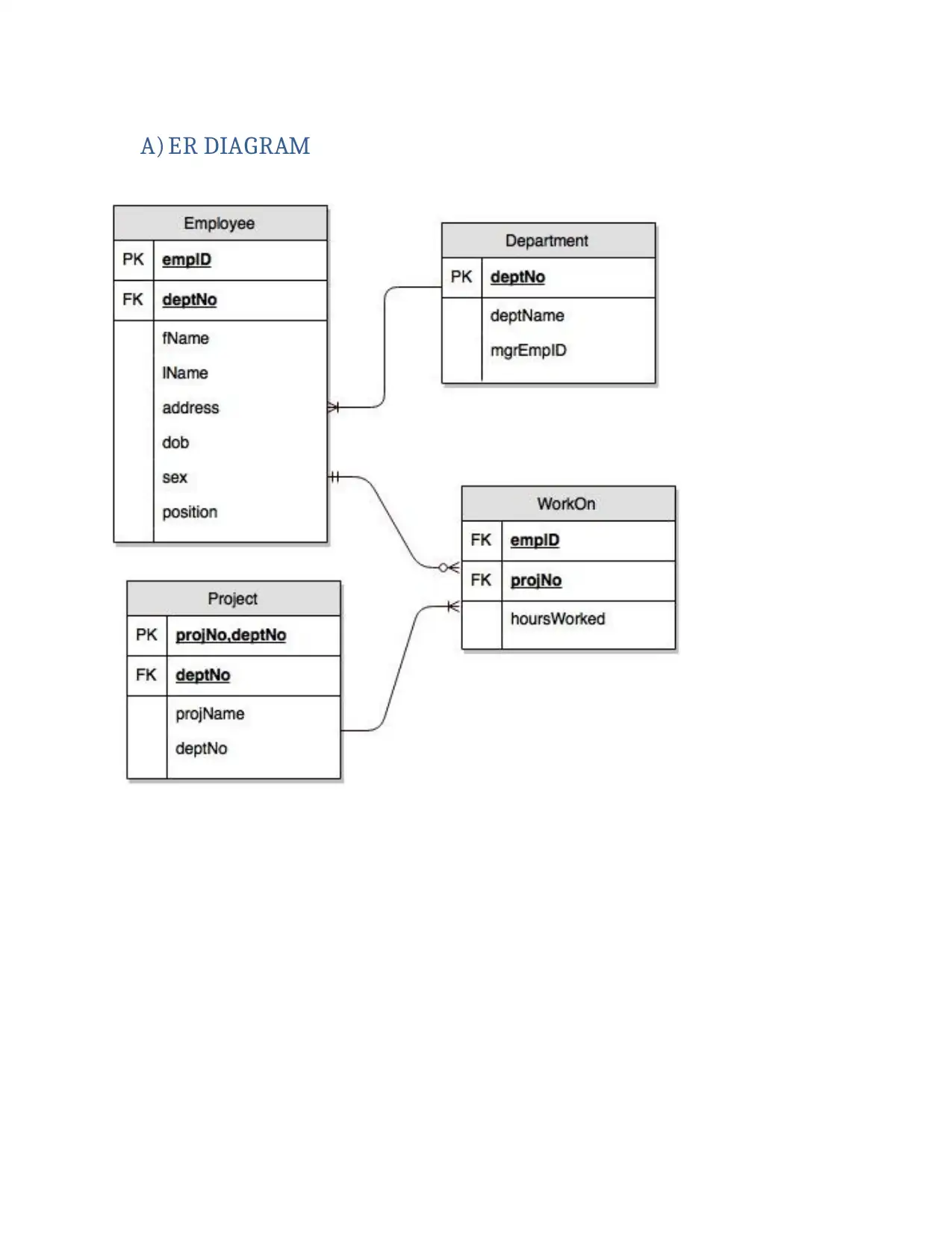

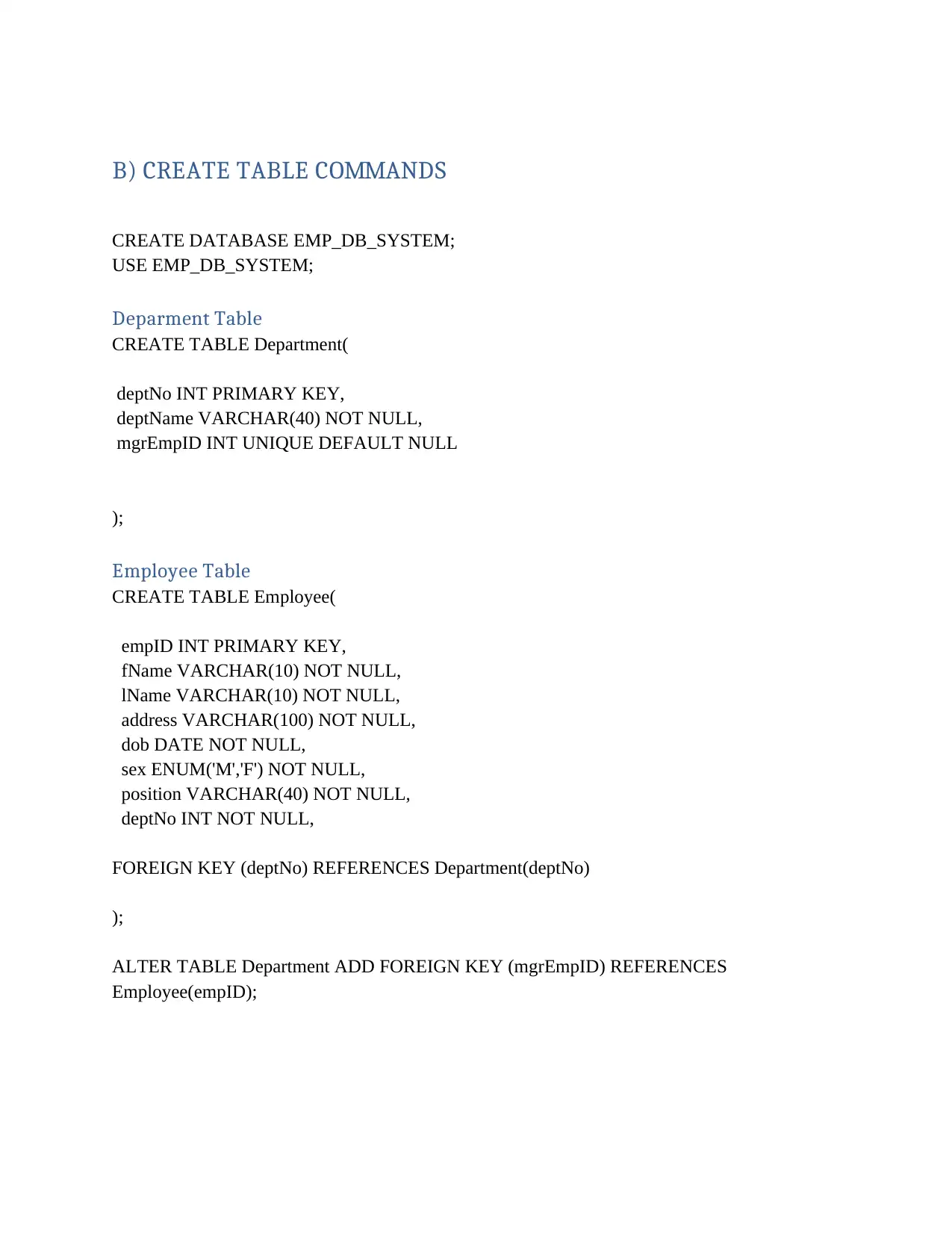
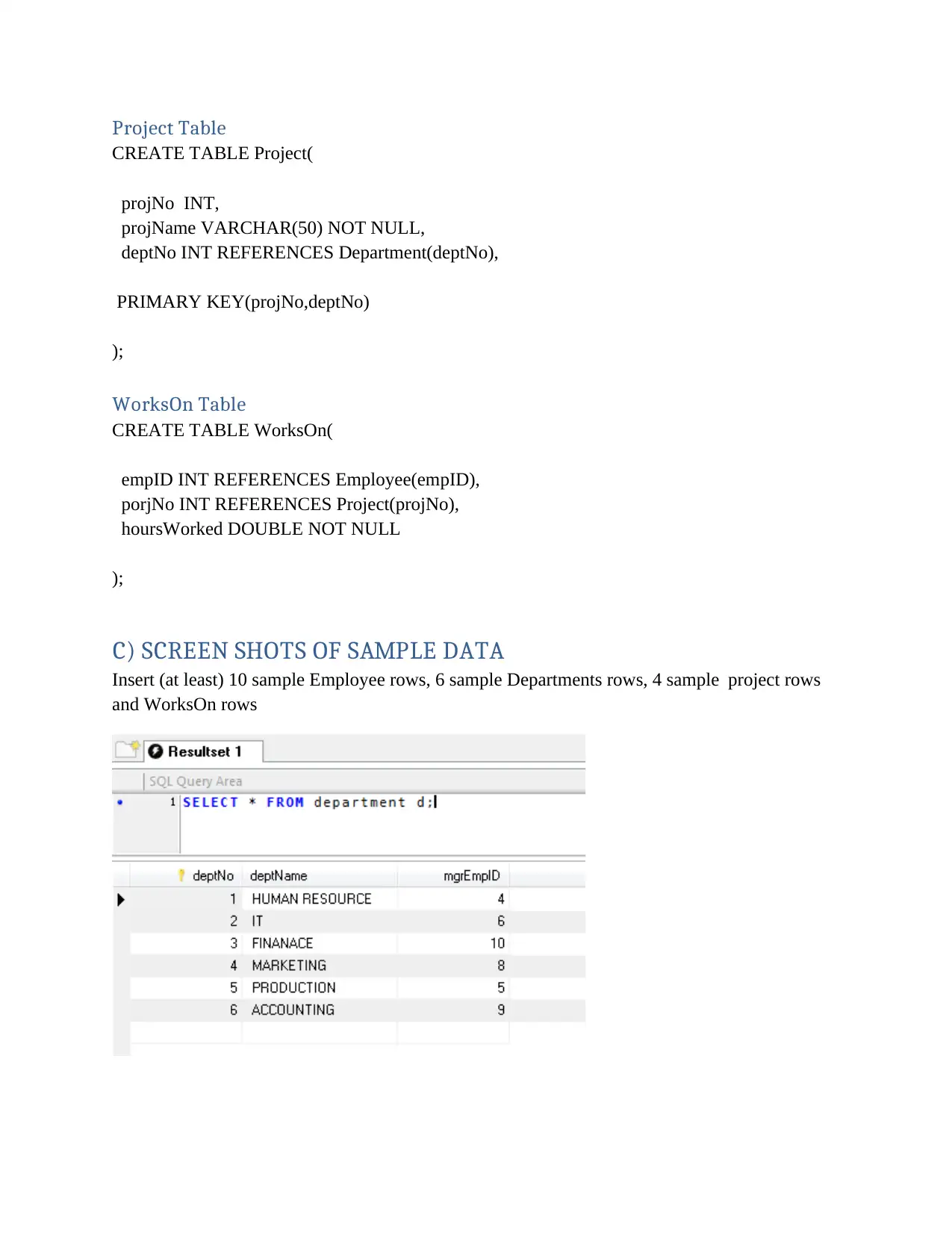
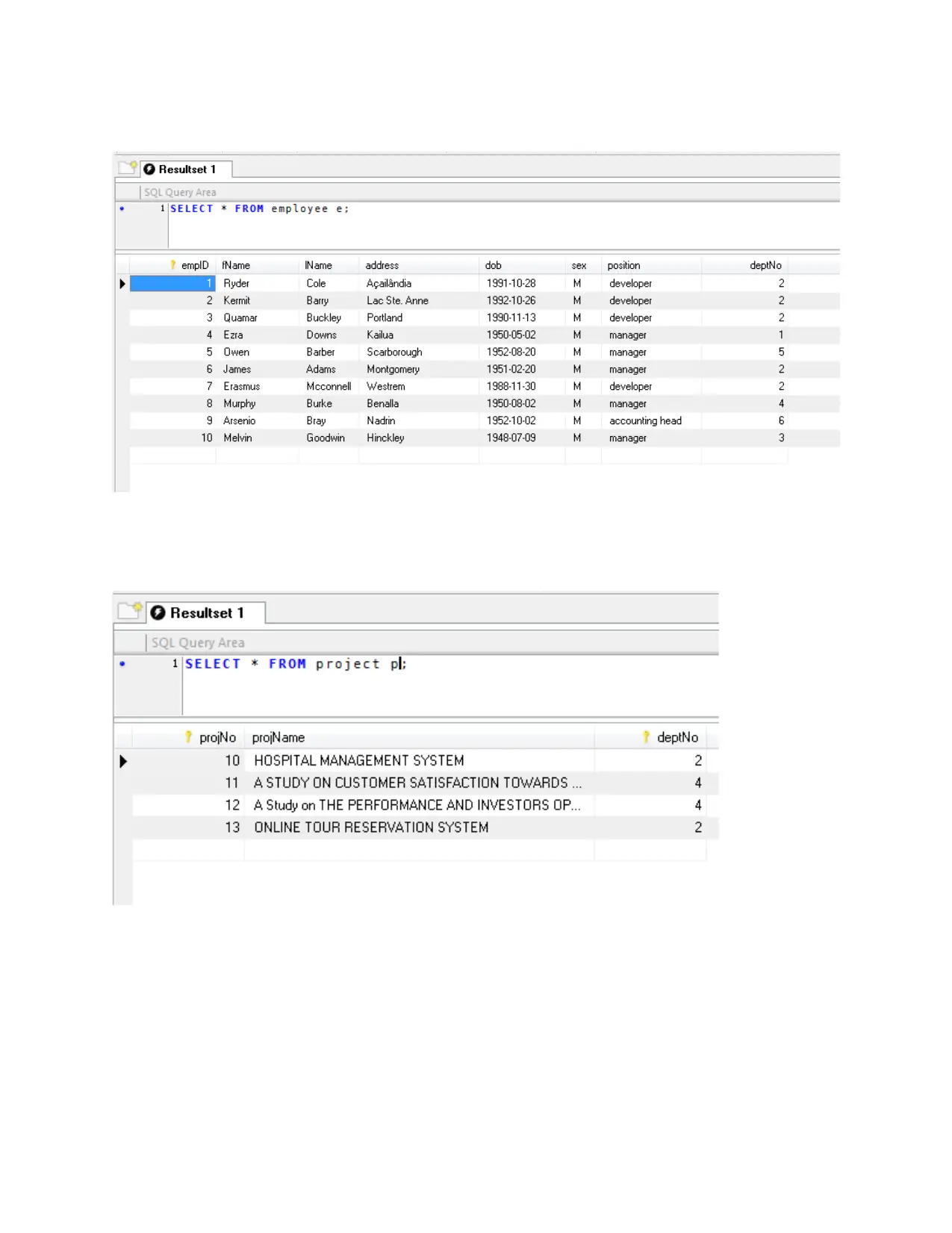
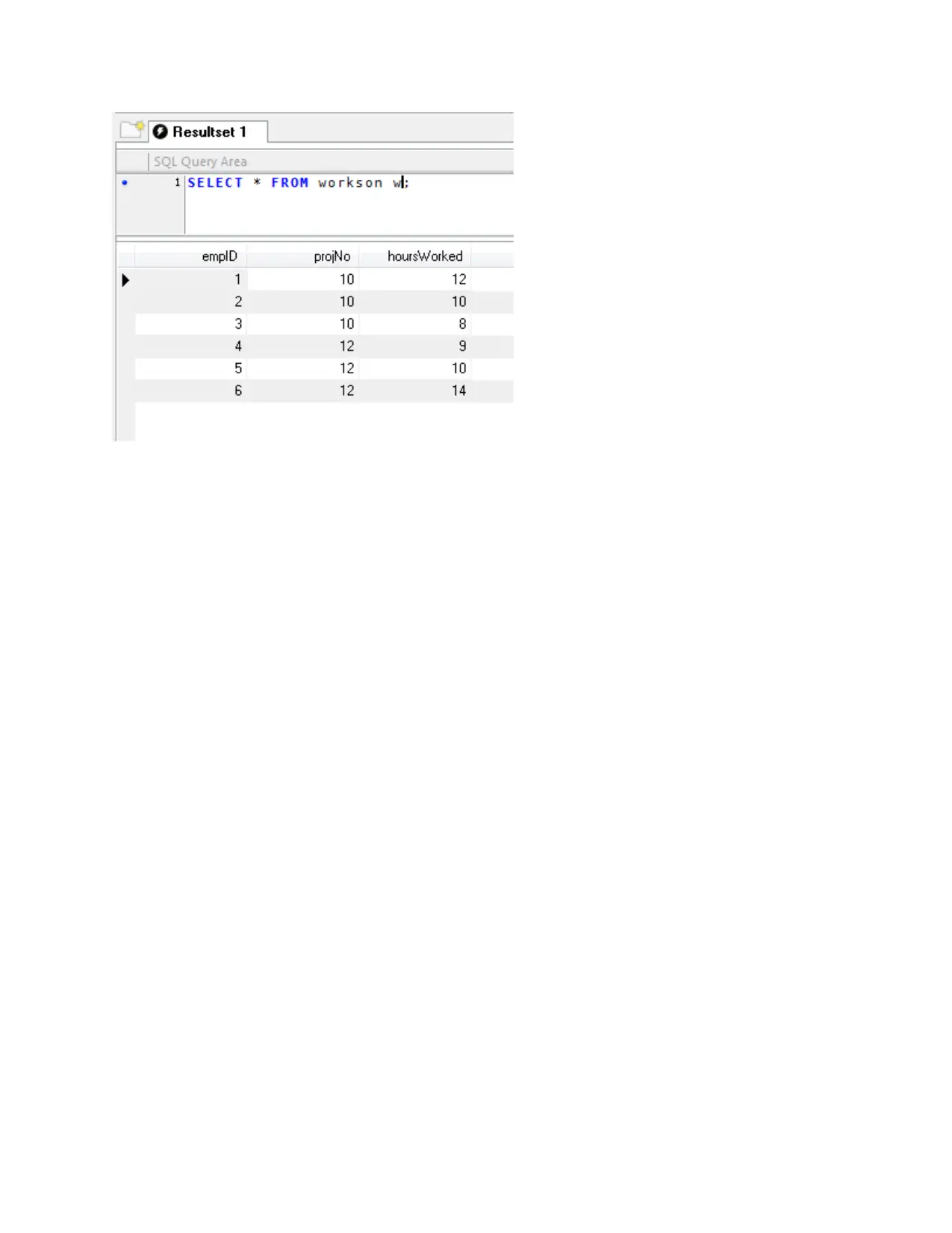
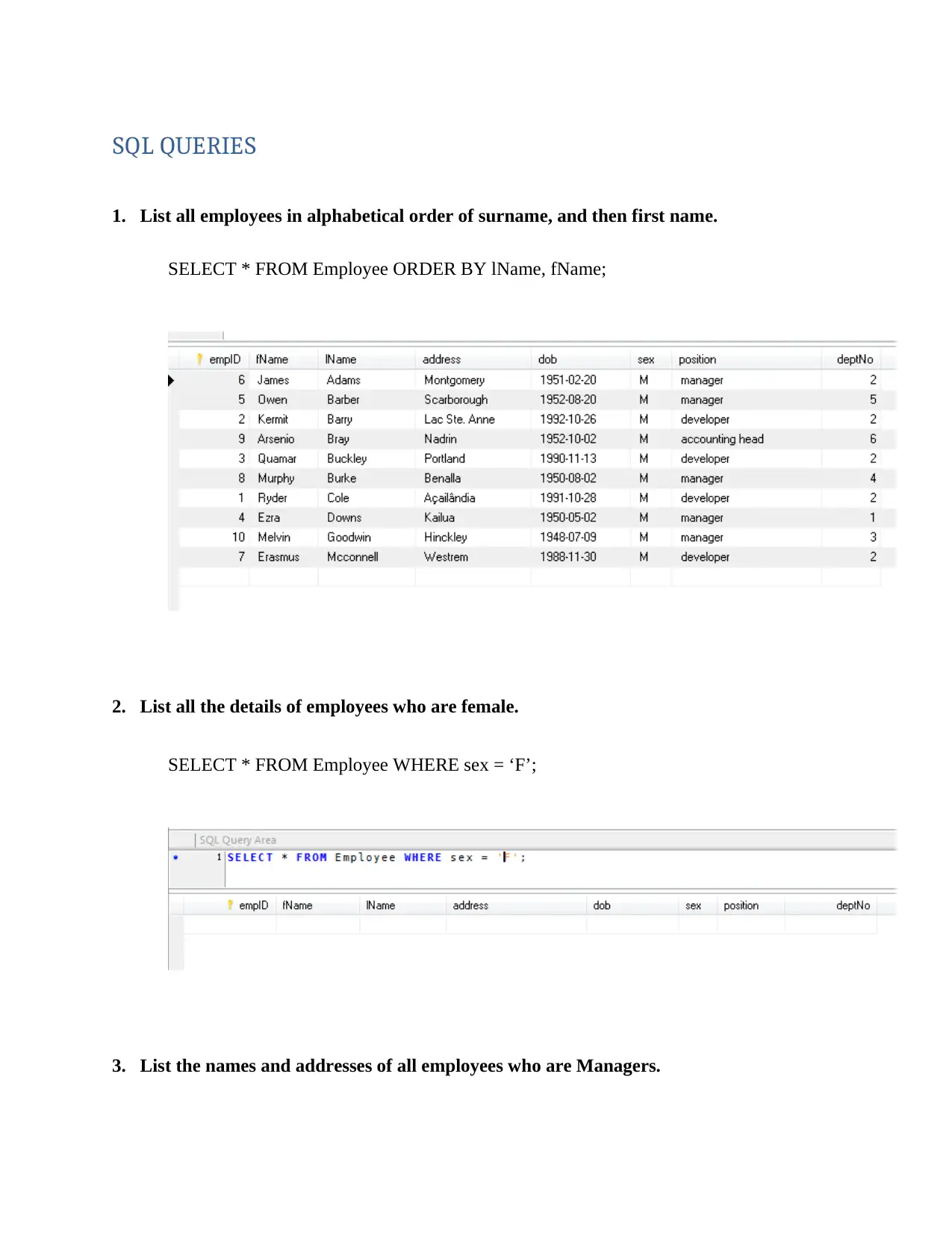
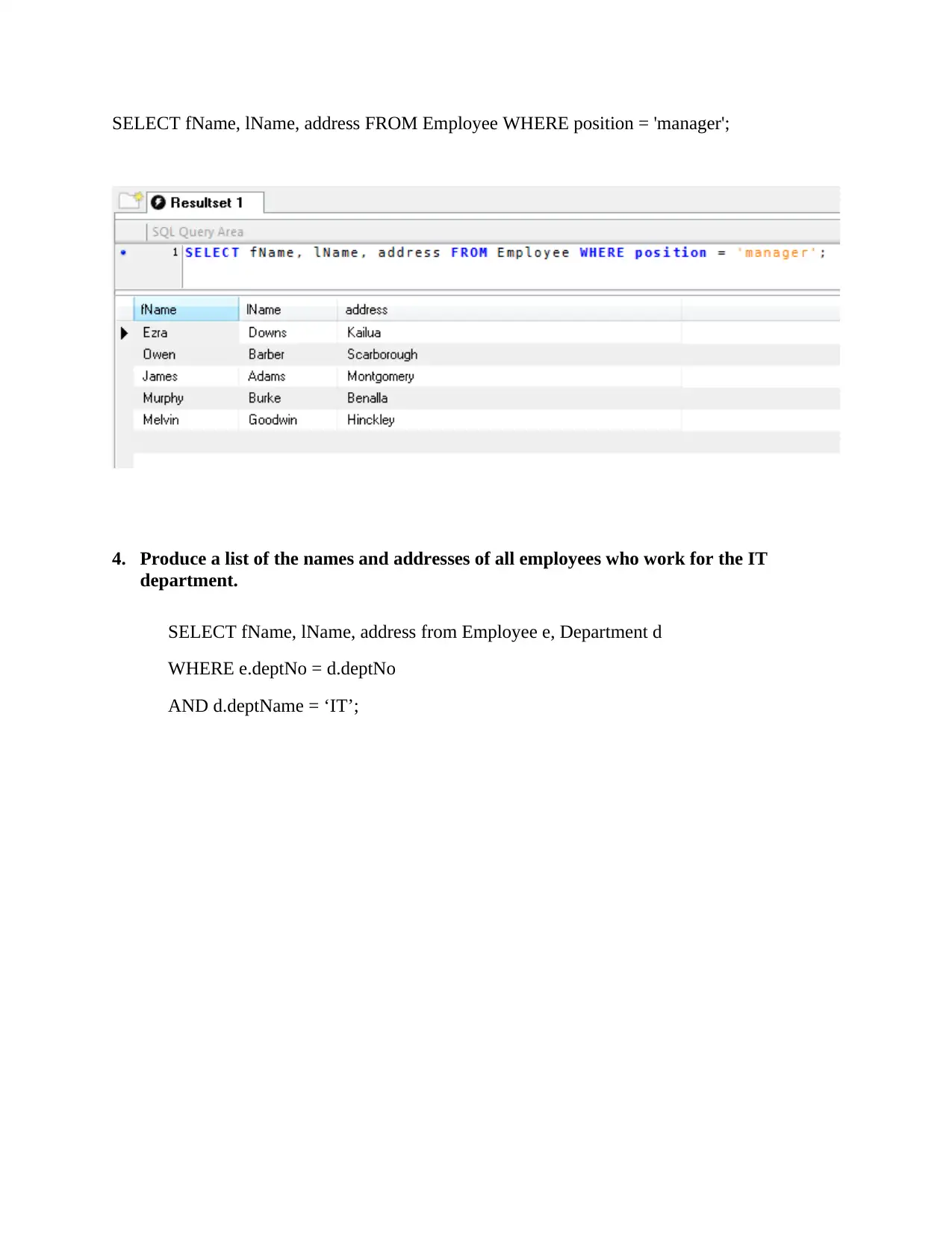
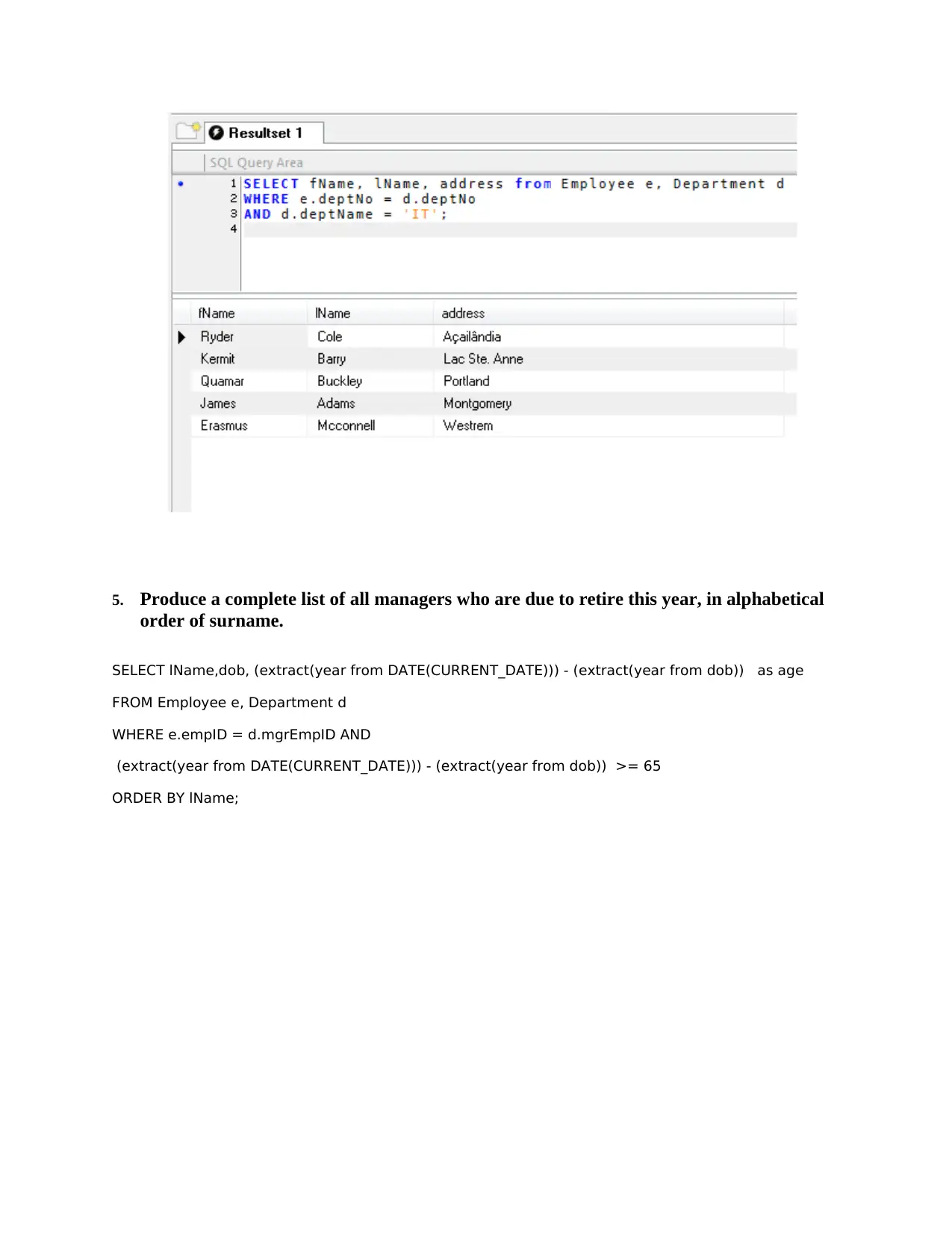
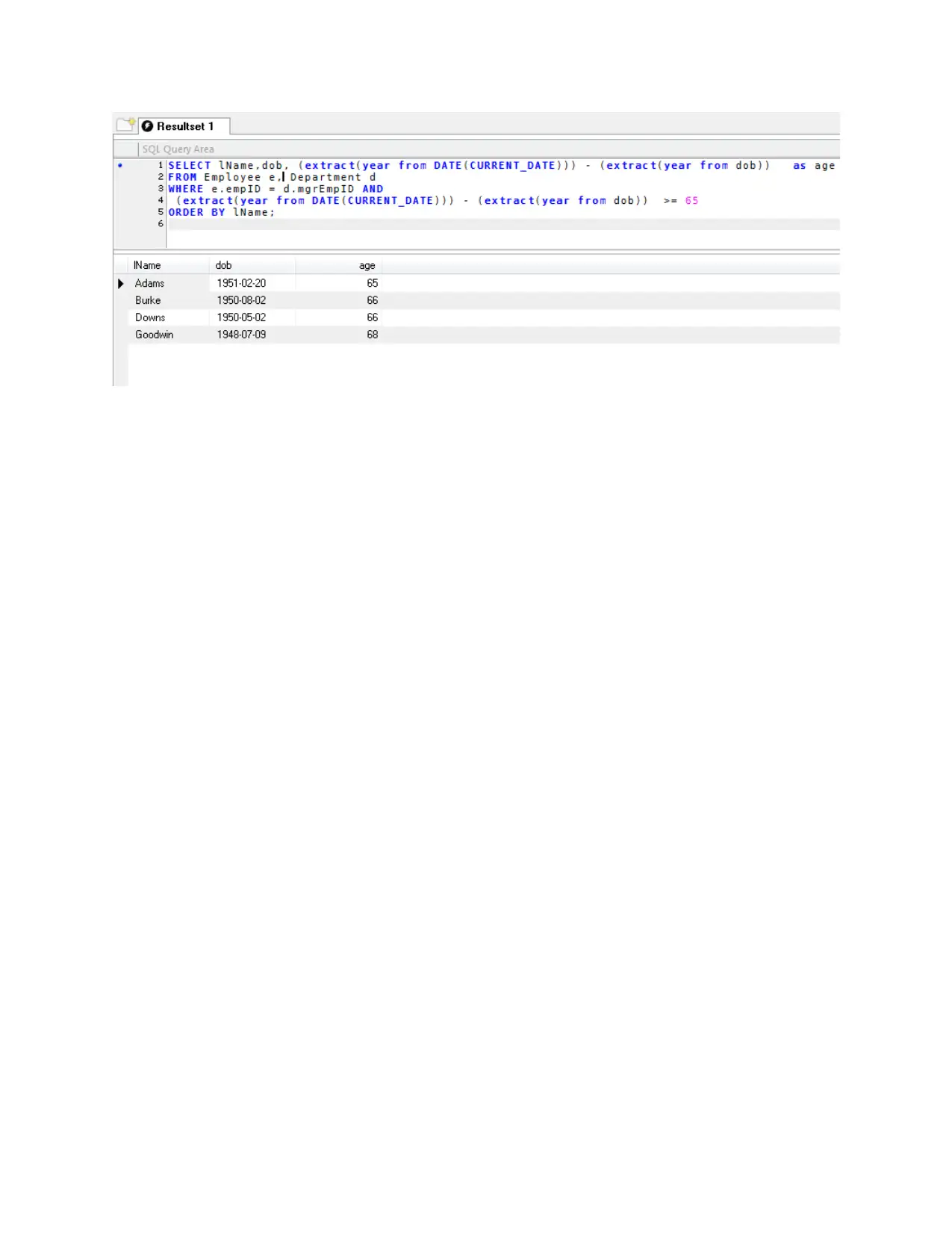
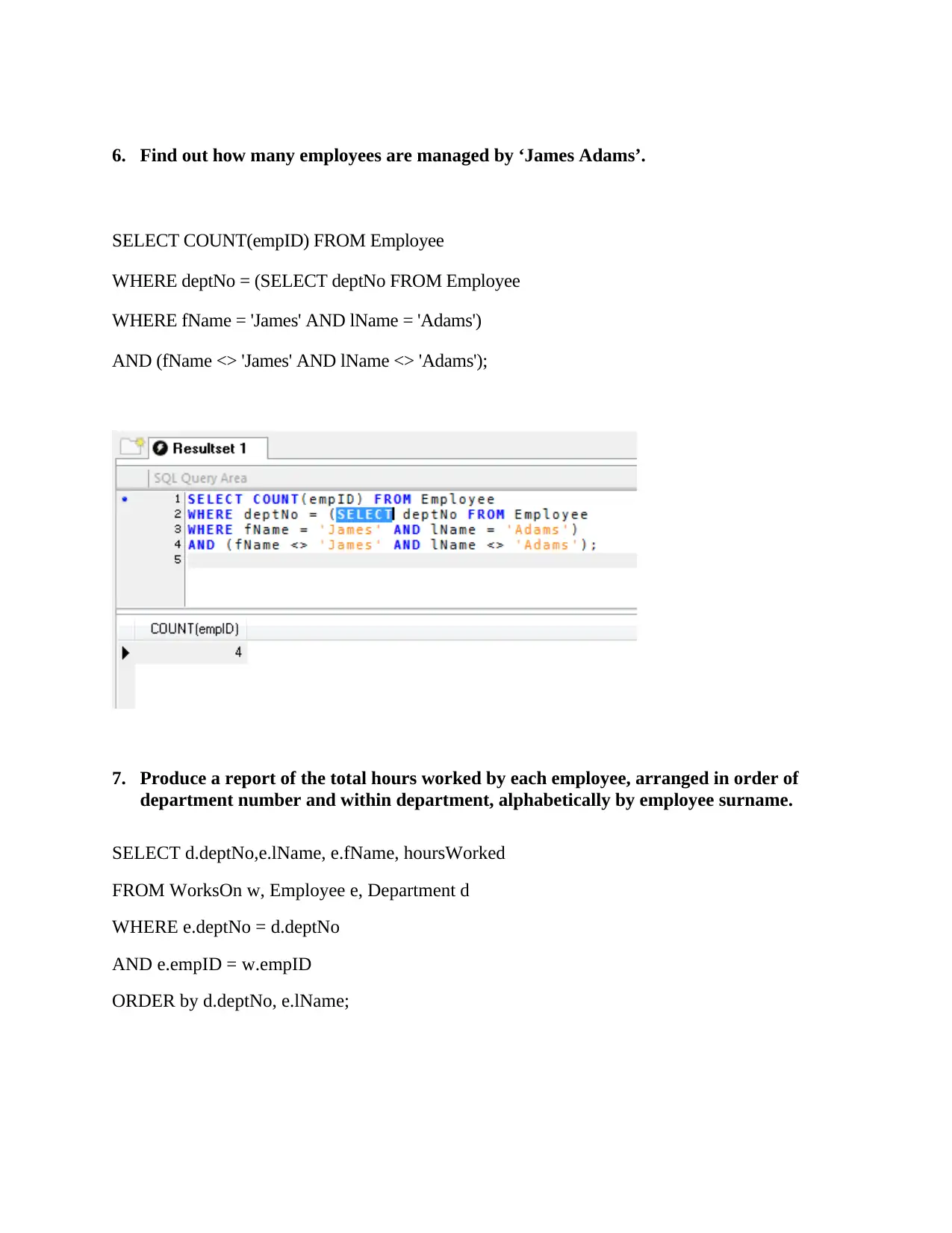






![[object Object]](/_next/static/media/star-bottom.7253800d.svg)